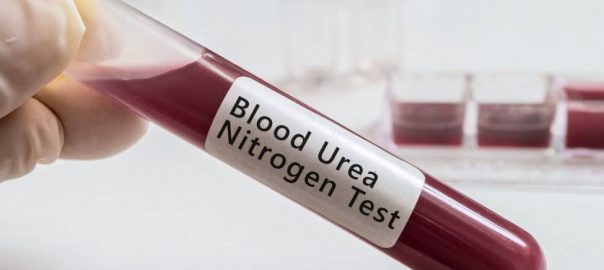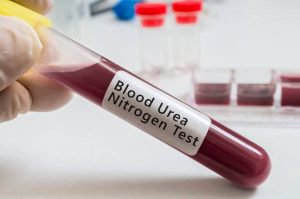Definition of Urea
The urea is a molecule which results from a process of protein degradation. It is the main form of elimination of nitrogenous waste by urine. It is the nitrogen of the proteins which, combined with molecules produced by the liver, constitutes the urea.
Why make dosage of urea?
The urea assay allows, along with other measurements, to evaluate renal function, especially the presence of renal failure. It is also prescribed to monitor the renal function of people with diabetes or having suffered a myocardial infarction. Indeed, when the kidneys are not functioning normally, there is an increase in the blood concentrations of urea, creatinine and uric acid. Some liver conditions can also affect the level of urea in the blood.
The dosage of urea alone in the blood is however not very informative, because the amount of urea produced each day varies according to the diet and its excretion by the kidneys is irregular. The determination of creatinine is therefore generally preferred or at least performed at the same time.
Urea can also be evaluated in the urine (“clearance” of urea). Urine urea/blood urea ratio can help the nephrologist in Delhi determine the cause of kidney failure. In addition, the urea assay can be used to evaluate the effectiveness of dialysis.
What results can be expected from a urea assay?
The dosage of urea in the blood (uremia) is performed on a blood sample, usually performed at the bend of the elbow.
It should preferably be fasting and avoid meals too rich in protein the previous days.
The urine urea (uricemia) dosage is 24 hours.
What results can be expected from a urea assay?
Normal values for urea in the blood range from 2.5 to 7.6 mmol / L (or 0.10 to 0.55 g / L).
In children and pregnant women, these values are lower.
In the urine, urea is found at 300 to 500 mmol / 24 hours.
The concentration of urea increases abnormally in various situations, including:
- in case of kidney failure or kidney damage
- in case of infections, cardiovascular accident, shock, stress, etc.
- when taking certain medications
- in case of very high protein diet
Decreased urea levels may be a sign of dietary protein deficiency, for example, gastrointestinal malabsorption, or severe liver disease.


